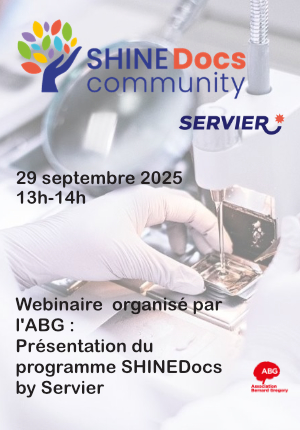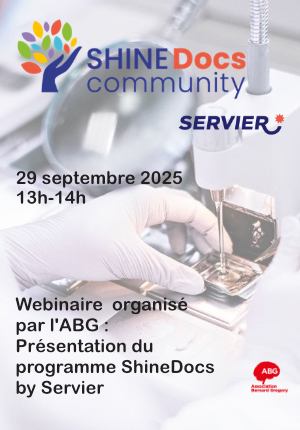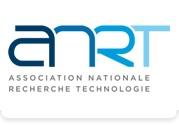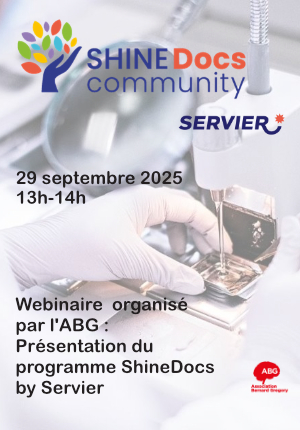Approches neuro-symboliques pour l'interopérabilité des graphes de connaces dans le domaines de l'énergie // Neuro-symbolic approaches for energy knowledge graphs Interoperability
|
ABG-132523
ADUM-66529 |
Thesis topic | |
| 2025-06-16 | Cifre |
Université Paris-Saclay GS Informatique et sciences du numérique
GIF-SUR-YVETTE - Ile-de-France - France
Approches neuro-symboliques pour l'interopérabilité des graphes de connaces dans le domaines de l'énergie // Neuro-symbolic approaches for energy knowledge graphs Interoperability
Graphe de connaissance, Ontologie, Apprentissage neuro-symbolique, interoperability sémantique, Energie
Knowledge graph, Ontology, Neuro-symbolic learning, Semantic interoperability, Energy
Knowledge graph, Ontology, Neuro-symbolic learning, Semantic interoperability, Energy
Topic description
L'accélération de la transformation numérique joue un rôle déterminant dans l'invention et le déploiement de la transition énergétique verte et des systèmes énergétiques de demain. Il n'existe pas de plateforme de données unique reliant les données de production, de transport, de distribution et de consommation d'électricité en Europe, ni celles des différents vecteurs énergétiques (électricité, gaz, chaleur, etc.). De nombreux modèles et initiatives majeurs ont vu le jour pour répondre au besoin de représentation standardisée des données dans le domaine de l'énergie. L'objectif principal est de surmonter le défi posé par la disparité des formats de données et des conventions de nommage entre les différents systèmes énergétiques, fabricants d'équipements et plateformes logicielles. Ces éléments sont essentiels à l'optimisation des systèmes énergétiques, à l'appui des décisions politiques et à l'intégration des énergies renouvelables. Le principal problème réside dans le manque d'interopérabilité entre ces modèles, leur capacité à communiquer, à échanger des données et à exploiter efficacement les informations. De plus, l'accès aux données reste un obstacle majeur au partage des connaissances en matière d'économie d'énergie et à l'adoption d'approches d'IA pour exploiter pleinement le potentiel des données énergétiques. L'interopérabilité sémantique est le niveau d'interopérabilité le plus élevé et le plus complexe, notamment dans le domaine de l'énergie où les données sont par nature dynamiques et évolutives.
Les graphes de connaissances et l'interopérabilité sémantique sont étroitement liés, notamment dans le contexte de la gestion de données complexes. La puissance des graphes de connaissances réside dans leur capacité à capturer et à représenter ces informations complexes, à contextualiser les entités, leurs relations et leurs propriétés dans une structure graphique. Ils s'appuient souvent sur des ontologies qui fournissent des définitions formelles des entités, des concepts et des relations, facilitant ainsi le traitement intelligent des données, le raisonnement et l'inférence. Ce projet de thèse s'inscrit dans ce cadre. Son objectif est d'étudier de nouvelles approches combinant les mécanismes d'inférence sous-jacents à la sémantique des données et l'intégration de graphes de connaissances ML afin de relever les défis de l'interopérabilité entre les modèles de données. L'objectif est d'améliorer le modèle d'apprentissage en utilisant la sémantique et les règles pour prédire le type de relations entre les entités.
------------------------------------------------------------------------------------------------------------------------------------------------------------------------
------------------------------------------------------------------------------------------------------------------------------------------------------------------------
Accelerating digital transformation plays an influential role in inventing and deploying the green energy
transition and energy systems of tomorrow. There is no single data platform connecting data from the
generation, transmission, distribution and consumption in Europe's electricity or across the various energy vectors (electricity, gas, heat, . . . ). Many prominent models and initiatives have emerged to address
the need for standardized data representation in the energy domain. The major goal is to overcome the
challenge of disparate data formats and naming conventions across different energy systems, equipment
manufacturers, and software platforms. They are essential in optimizing energy systems, supporting policy decisions, and integrating renewable sources.
The main issue is related to the lack of interoperability between these models, their ability to com-
municate, to exchange data, and to use the information effectively. Moreover, access to data remains a
significant barrier to sharing energy-saving insights, to the adoption of AI approaches to unlock the full
potential of energy data.. Semantic interoperability is the highest and most challenging level of interop-
erability, especially in the field of energy where data is by nature dynamic and evolving.
Knowledge graphs and semantic interoperability are deeply intertwined, especially in the context of
managing complex data. The power of knowledge graphs lies in their ability to to capture and repre-
sent this complex information, to contextualize entities, their relationships and properties in a graph-
structure. They often leverage ontologies which provide formal definitions of entities concepts and rela-
tions facilitating intelligent data processing, reasoning and inference.
This PhD proposal comes within this scope, the purpose is to investigate new approaches combining
the inference mechanisms underlying data semantics and ML knowledge graph embeddings to tackle the
challenges of interoperability between data models. The purpose is to be able to enhance the learning
model using semantics and rules to predict the type of relationships between entities.
------------------------------------------------------------------------------------------------------------------------------------------------------------------------
------------------------------------------------------------------------------------------------------------------------------------------------------------------------
Début de la thèse : 01/11/2025
Les graphes de connaissances et l'interopérabilité sémantique sont étroitement liés, notamment dans le contexte de la gestion de données complexes. La puissance des graphes de connaissances réside dans leur capacité à capturer et à représenter ces informations complexes, à contextualiser les entités, leurs relations et leurs propriétés dans une structure graphique. Ils s'appuient souvent sur des ontologies qui fournissent des définitions formelles des entités, des concepts et des relations, facilitant ainsi le traitement intelligent des données, le raisonnement et l'inférence. Ce projet de thèse s'inscrit dans ce cadre. Son objectif est d'étudier de nouvelles approches combinant les mécanismes d'inférence sous-jacents à la sémantique des données et l'intégration de graphes de connaissances ML afin de relever les défis de l'interopérabilité entre les modèles de données. L'objectif est d'améliorer le modèle d'apprentissage en utilisant la sémantique et les règles pour prédire le type de relations entre les entités.
------------------------------------------------------------------------------------------------------------------------------------------------------------------------
------------------------------------------------------------------------------------------------------------------------------------------------------------------------
Accelerating digital transformation plays an influential role in inventing and deploying the green energy
transition and energy systems of tomorrow. There is no single data platform connecting data from the
generation, transmission, distribution and consumption in Europe's electricity or across the various energy vectors (electricity, gas, heat, . . . ). Many prominent models and initiatives have emerged to address
the need for standardized data representation in the energy domain. The major goal is to overcome the
challenge of disparate data formats and naming conventions across different energy systems, equipment
manufacturers, and software platforms. They are essential in optimizing energy systems, supporting policy decisions, and integrating renewable sources.
The main issue is related to the lack of interoperability between these models, their ability to com-
municate, to exchange data, and to use the information effectively. Moreover, access to data remains a
significant barrier to sharing energy-saving insights, to the adoption of AI approaches to unlock the full
potential of energy data.. Semantic interoperability is the highest and most challenging level of interop-
erability, especially in the field of energy where data is by nature dynamic and evolving.
Knowledge graphs and semantic interoperability are deeply intertwined, especially in the context of
managing complex data. The power of knowledge graphs lies in their ability to to capture and repre-
sent this complex information, to contextualize entities, their relationships and properties in a graph-
structure. They often leverage ontologies which provide formal definitions of entities concepts and rela-
tions facilitating intelligent data processing, reasoning and inference.
This PhD proposal comes within this scope, the purpose is to investigate new approaches combining
the inference mechanisms underlying data semantics and ML knowledge graph embeddings to tackle the
challenges of interoperability between data models. The purpose is to be able to enhance the learning
model using semantics and rules to predict the type of relationships between entities.
------------------------------------------------------------------------------------------------------------------------------------------------------------------------
------------------------------------------------------------------------------------------------------------------------------------------------------------------------
Début de la thèse : 01/11/2025
Funding category
Cifre
Funding further details
CIFRE - ANRT (Agence Nationale Recherche Technologie)
Presentation of host institution and host laboratory
Université Paris-Saclay GS Informatique et sciences du numérique
Institution awarding doctoral degree
Université Paris-Saclay GS Informatique et sciences du numérique
Graduate school
580 Sciences et Technologies de l'Information et de la Communication
Candidate's profile
The applicant must hold a Master's degree (or equivalent) and have a
solid background in computer science fundamentals, in machine learning and knowledge representa-
tion. The required documents:
• Curriculum vitae describing the main projects (including the master thesis)
• Transcripts of at least the 3 last academic years
• Recommendation letters
The applicant must hold a Master's degree (or equivalent) and have a solid background in computer science fundamentals, in machine learning and knowledge representa- tion. The required documents: • Curriculum vitae describing the main projects (including the master thesis) • Transcripts of at least the 3 last academic years • Recommendation letters
The applicant must hold a Master's degree (or equivalent) and have a solid background in computer science fundamentals, in machine learning and knowledge representa- tion. The required documents: • Curriculum vitae describing the main projects (including the master thesis) • Transcripts of at least the 3 last academic years • Recommendation letters
2026-10-31
Apply
Close
Vous avez déjà un compte ?
Nouvel utilisateur ?
More information about ABG?
Get ABG’s monthly newsletters including news, job offers, grants & fellowships and a selection of relevant events…
Discover our members
 Institut Sup'biotech de Paris
Institut Sup'biotech de Paris  CESI
CESI  ASNR - Autorité de sûreté nucléaire et de radioprotection - Siège
ASNR - Autorité de sûreté nucléaire et de radioprotection - Siège  CASDEN
CASDEN  Généthon
Généthon  TotalEnergies
TotalEnergies  ADEME
ADEME  SUEZ
SUEZ  Groupe AFNOR - Association française de normalisation
Groupe AFNOR - Association française de normalisation  Tecknowmetrix
Tecknowmetrix  ONERA - The French Aerospace Lab
ONERA - The French Aerospace Lab  Ifremer
Ifremer  Aérocentre, Pôle d'excellence régional
Aérocentre, Pôle d'excellence régional  Nokia Bell Labs France
Nokia Bell Labs France  MabDesign
MabDesign  ANRT
ANRT  PhDOOC
PhDOOC  Laboratoire National de Métrologie et d'Essais - LNE
Laboratoire National de Métrologie et d'Essais - LNE  MabDesign
MabDesign





